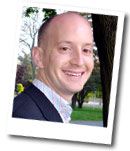How do we measure the value of social media to an organization? What should we be measuring? What are the metrics that accurately capture the things we want to measure?
Over the past year, people like Jeremiah Owyang, Kami Huyse, Scott Karp, Christopher Carfi, Mike Manuel, the Research Fellows at the Society for New Communications Research, John Bell, Flemming Madsen, Geoff Livingston, Katie Paine, David Brain, Brendan Cooper, Brian Solis and Jeff Jarvis have made valuable contributions to our emerging understanding of social media measurement and metrics.
 The online discussion is great. But sometimes, it’s even better to sit down face to face and talk things through.
The online discussion is great. But sometimes, it’s even better to sit down face to face and talk things through.
This is what I’d like to do. Let’s bring together a group of experts for a roundtable discussion of social media measurement and metrics.
Participants could be drawn from three groups:
- Social media thought leaders who have been writing about these issues.
- Corporate and organization executives who have been attempting to apply social media measurement and metrics.
- Companies that are developing measurement and metrics solutions.
Let’s engage a moderator or group of moderators who would frame the questions and then attempt to draw out major issues, points of agreement, and lines of additional discussion. The roundtable format should enable participants to have a full discussion of each topic, with free exchanges of opinion, and hopefully the development of consensus on principal issues.
The product of the roundtable could be a white paper that will follow on the Jeremiah Owyang-authored white paper, Tracking the Influence of Conversations.
 We’d also organize a special Third Tuesday social media meetup at the conclusion of the roundtable to enable the broader social media community to discuss these issues with a panel of the roundtable participants.
We’d also organize a special Third Tuesday social media meetup at the conclusion of the roundtable to enable the broader social media community to discuss these issues with a panel of the roundtable participants.
It looks like 2008 Mesh Conference will be held the third week of May. If we could organize the roundtable the day before or after Mesh, that would enable participants who travel to the roundtable to attend Mesh. The fourth week of May is the U.S. Memorial Day holiday week. Holding the conference the Memorial Day week would give U.S. attendees a chance to spend a long weekend in Toronto. Either way, May is a great time to visit Toronto. The leaves have emerged and the flowers are in bloom. The patios are open. And the streets are alive with Torontonians rediscovering after a long winter just how great their city is.
What do you think about the concept of a roundtable on social media measurement and metrics?
If we organize it, will you come?






 I’m planning my 2008 conference schedule. And as I do so, I’d like to share my assessment of the conferences that are worth attending.
I’m planning my 2008 conference schedule. And as I do so, I’d like to share my assessment of the conferences that are worth attending. included the
included the  The online discussion is great. But sometimes, it’s even better to sit down face to face and talk things through.
The online discussion is great. But sometimes, it’s even better to sit down face to face and talk things through.